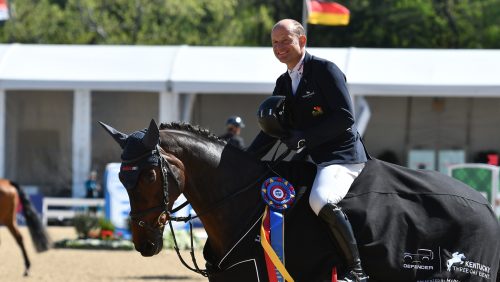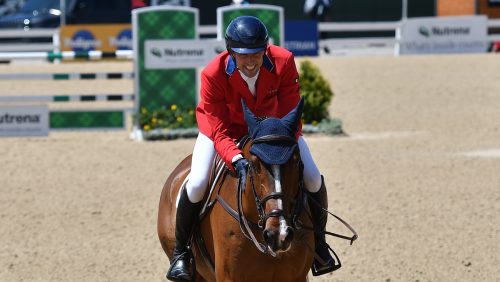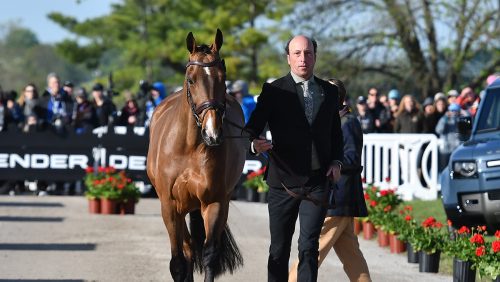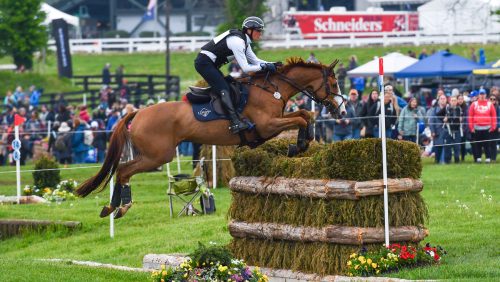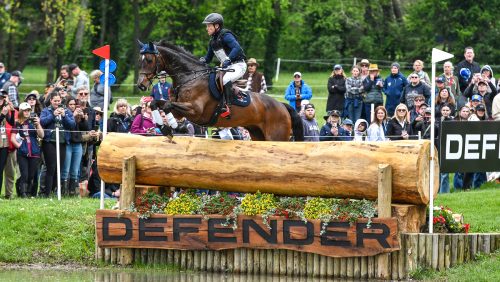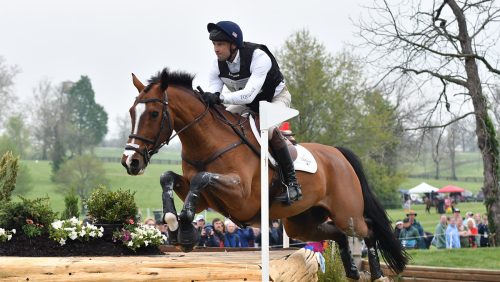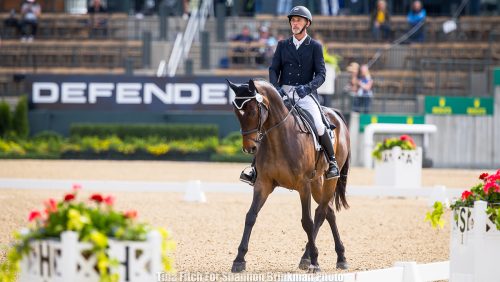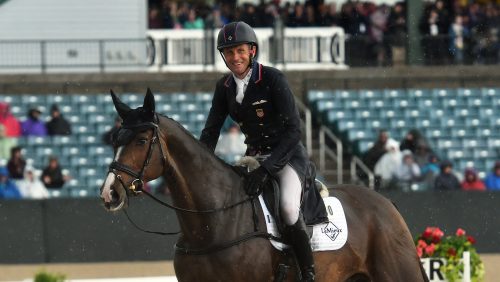On my drive back to Aiken, S.C., from a recent trip to jump down at HITS Ocala in Florida, my new wife Jess and I began ironing out the remainder of the spring schedule for all of the horses. In years past I would have jumped the event horses at an early January show before their eventing season would begin later in the month.
But when searching all of our options, we discovered the sad fact that the price of an early start to the eventing season has become prohibitive when considering the alternatives. Many events have continued to raise their entry fees to unsustainable levels.
If we’d like to see the sport grow and produce athletes for the future—both equine and human—we have to change the way the sport operates.
Admittedly, I have the enviable opportunity to take advantage of all that the Southeast has to offer during the winter months. While I do teach a number of lessons each week, my primary responsibility is to develop the horses under our care to the best of their ability. At the moment we have a handful of jumpers, dressage horses and the core group of eventers.
Each horse has its own strengths and weaknesses. I’ve always found it incredibly helpful to diversify their experience and find outings that offer big atmosphere with well-built facilities.
We often bring the eventers to jumper shows, as well as taking the jumpers on small cross-country outings. Each discipline has its own attributes, which can benefit the horse’s confidence and skill set. In addition to our horses’ experience, I find it tremendously helpful to watch and learn from the best riders, regardless of discipline.
Make It Worthwhile
Many would contest that moving eventing more toward the hunter/jumper model will ruin the sport; I couldn’t disagree more. In nearly every current powerhouse nation, developing a talented horse from the ground up will not drive you to bankruptcy.
In my search for a more sustainable alternative schedule, we skipped our traditional first few events and took a truckload of horses over to our local jumper show in Aiken. The horses and I came away from the experience more mature, sharper and with a list of skills that need refinement before the upcoming competitions.
Aside from the training benefits, many of the horses nearly paid their way through the competition. The following week we took the same group out cross-country schooling at one of the many options in the area. Although a run or two short of last year’s total, they feel as prepared or better than in years past.
As I see it, without financial rewards for a good performance, our owners and riders will continue to have a very difficult time maintaining horses long enough to produce them to the international levels. Our riders will also continue to have a massive challenge in their search for additional partners and owners to back the superstar horses of tomorrow. If not for the love of the sport and the personal rapport with the rider, most rational people would not own an event horse.
When approached by people who may be interested in supporting a horse with me, I have always tried to be very clear that it is not an investment; just as we would not enter into a relationship with the goal of buying a horse in order to compete at one big competition.
I want to have owners who enjoy watching the horses develop, and ultimately enjoy the journey rather than the destination. But reaching that destination needs to be more affordable!
ADVERTISEMENT
A New Structure?
Why can’t we create a three-tiered competition system, in consultation with riders, owners and officials, which is recognized by the U.S. Eventing Association?
The first would be on a smaller scale, for lack of a better term C-class event. These would not necessarily offer prize or add-back money, but the entry fees should be substantially less than your average events today.
I fully understand that the overhead that burdens organizers is tremendous. (I am a U.S. Equestrian Federation judge, technical delegate, and sit on the board of the Carolina International and the Professional Riders Organization.)
Again, in no way am I advocating that organizers have to simply volunteer their facilities and time. But I believe that it is very possible to run productive competitions for 30 to 50 percent less than what some are charging.
The USEA should be credited for their education and officiating programs, which have allowed for a standard of judging and organizational framework for events, at a significant cost to the organization. Ultimately, unrecognized events today are benefiting from each and every USEA member. I don’t see a reason that the USEA can’t replicate a similar level of competition.
Competitors at C-class events should come away with a great introduction to the sport, having an inviting course and welcoming environment without driving organizers into debt. They shouldn’t have to pay the USEA dues currently charged per entry.
They also shouldn’t be subject to all of the red tape now associated with running USEA horse trials as we know them. There is no reason that these competitions need strict oversight by multiple recognized judges, nor is it necessary to have timing on the jumping phases. Aside from medical services, all other additional costs shall be on the chopping block!
While this may seem an extreme position, not one of the organizers with whom I’ve spoken—who have literally run hundreds of competitions from unrecognized through FEI—have objected.
I’ve heard the same story from all, that the key contributing cost factors include USEA/USEF fees, medical services, multiple recognized judges (who are not exactly getting rich on the back of these shows) including travel, hotel etc., constant course alterations and course improvements as well as needless forms and reports, all of which increase the costs to all.
Some will also argue that the legal liability is too great to sanction a C-class event as a USEA competition without all of this oversight. I simply can’t imagine that waivers couldn’t be drafted in order to limit the exposure to the organization and management. Every unrecognized show or schooling facilities I’ve been to over the past 10 years requires such a release before riding.
We see proof that a trimmed down, lean version of the sport can be very successful. Countless unrecognized competitions run throughout the country for very reasonable entry fees and with very satisfied competitors, organizers and officials.
It could also serve to reduce the barriers of entry for new participants, because as we all know, once they hit the cross-country course, they will be hooked!
ADVERTISEMENT
Moreover, the USEA actually already has something along these lines in action today. Their New Event Horse series, which runs along with the Young Event Horse series, is open to any and all as a “just to get their feet wet” type of class. It’s about as informal and loosely regulated as you can get; it just needs to be expanded!
Raising The Bar
B-class events could allow competitors the opportunity to get the most out of their experience; larger scale, bigger venues, atmosphere and the prize money to at least cover entry fees if you finish in the top five.
You see many events running today that would easily fit into this category—well run competitions with decent footing and attention to detail throughout the experience. This class of competition would allow horses and riders to develop, as well as reward and support the future stars both human and equine on their way to represent the United States.
It will also allow the hard working adult amateur and weekend warrior the chance to cover their costs and allow them to compete on a more regular basis with the peace of mind that the show they enter will be of a high standard in regards to organization, footing and overall feel.
A-class events would ultimately cost more to enter, but would truly offer a world-class competition with the prospect of earning significant prize money. These would hopefully be heavily sponsored, as they would be the flagship events throughout the country.
I realize that many readers are by now ready to jump through the screen at me and yell that these classes of competition aren’t realistic.
The shining example at the moment, with the tremendous leadership of Jane Murray, is the Carolina International CIC and Horse Trials, which is running March 20-23 in Raeford, N.C.
It could very well be the prototypical class A competition. It is offering $25,000 in the three-star, $10,000 in the two-star, $5,000 in the one-star, and add-back prize money for the horse trials. I believe this is the beginning of a revolution in the sport; following its announcement, a number of other events are beginning to follow suit.
I hope all participants and fans of the sport jump at the opportunity to help organizers and events like this who are clearly making a significant effort. These flagship competitions need your help—volunteer, spectate or simply purchase products and thank the sponsors who pledge their support to events like the Carolina International.
In order for eventing to flourish and develop further into a sport and broaden its reach, it must make financial sense for everyone involved. Revamping our rules and structure is the only way eventing can truly succeed, in my opinion.
Speak to your area representatives and organizations, or frankly anyone who will listen. Without a groundswell of support, our leaders at the USEA will not have the political capital or will to redirect the organization.
Head over to the Chronicle Forums to join the discussion about this idea…
Doug Payne is a professional event rider operating out of his Doug Payne Equestrian in Pottersville, N.J. He rode Crown Talisman to fourth at the 2013 Dutta Corp. Fair Hill International CCI*** (Md.) and was 19th at the 2012 Rolex Kentucky CCI**** on Running Order. In 2010, he rode Running Order on the second-placed U.S. team at the Boekelo CCI*** in the Netherlands. He holds USEF judge and technical delegate licenses for eventing and is a USEA certified Level III instructor. You can read all his blogs here.







